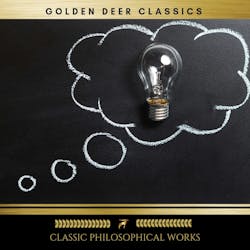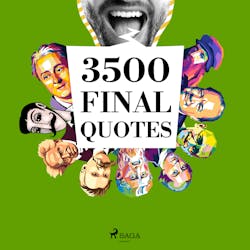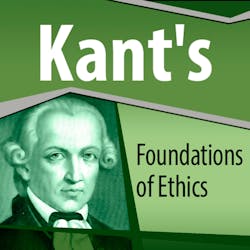Immanuel Kant's "Critique of Practical Reason" serves as a foundational text in moral philosophy, elucidating his pivotal concepts of duty, moral law, and autonomy. Written in a rigorous and systematic style, this work extends the exploration initiated in his earlier "Critique of Pure Reason," bridging theoretical understanding with practical application. Kant articulates the necessity of a universal moral law grounded in reason, arguing for a categorical imperative that compels individuals to act according to maxims that could be legislated as universal law. Through meticulous analysis and dense argumentation, Kant's literary form reflects Enlightenment ideals, fostering a discourse that elevates rationality as the essence of ethical principles. Immanuel Kant, a luminary of the Enlightenment, constructed his moral philosophy during a period rife with metaphysical speculation and burgeoning empirical science. His academic journey at the University of Königsberg was marked by intellectual rigor and an unwavering commitment to reason, which propelled him to question the nature of human freedom and moral accountability. The "Critique of Practical Reason" not only builds upon his critical philosophy but also resonates with his life experiences in a rapidly changing world, where the quest for moral certainty became increasingly vital. I highly recommend "Critique of Practical Reason" to readers seeking a profound engagement with ethical reasoning and the role of human agency. Kant's work challenges us to reconsider our moral responsibilities within the frameworks of rationality and autonomy, making it essential for students of philosophy and anyone invested in understanding the principles underpinning human behavior. His arguments continue to influence contemporary debates in ethics, reinforcing the timelessness of his insights and their applicability to modern moral dilemmas.

Puhtaan järjen kritiikki
Immanuel Kant
book
Ikuiseen rauhaan
Immanuel Kant
audiobook
Classic Philosophical Works (Thus Spoke Zarathustra, The Apology of Socrates, Tao Te Ching...)
Plato, Friedrich Nietzsche, Herman Hesse, Leo Tolstoy, Immanuel Kant, Sun Tzu
audiobook
An Answer to the Question: What is Enlightenment?
Immanuel Kant
audiobook
Harvard Classics (All 51 Volumes)
Johann Wolfgang von Goethe, Gotthold Ephraim Lessing, Thomas Carlyle, Plato, René Descartes, Immanuel Kant, Charles Darwin, Martin Luther, Robert Louis Stevenson, William Shakespeare, Dante Alighieri, Euripides, Percy Bysshe Shelley, Charles Lamb, Henry David Thoreau, Samuel Johnson, John Stuart Mill, David Hume, Joseph Addison, John Locke, John Fletcher, Francis Beaumont, Leigh Hunt, Epictetus, Thomas De Quincey, Samuel Taylor Coleridge, Jonathan Swift, Christopher Marlowe, Jacob Grimm, Wilhelm Grimm, William Hazlitt, Marcus Tullius Cicero, Daniel Defoe, Aesop, Richard Henry Dana, John Dryden, Philip Massinger, Pedro Calderón de la Barca, John Ruskin, Oliver Wendell Holmes, Ernest Renan, Robert Burns, David Garrick, Ralph Waldo Emerson, John Webster, Izaak Walton, John Bunyan, James Russell Lowell, Charles Augustin Sainte-Beuve, Homer, Edmund Burke, Plutarch, Molière, Aeschylus, Michael Faraday, Sophocles, William Makepeace Thackeray, Benjamin Franklin, Pierre Corneille, Jean Racine, Voltaire, Robert Browning, Oliver Goldsmith, Thomas Dekker, John Milton, Aristophanes, Blaise Pascal, Virgil, Simon Newcomb, William Penn, Walter Bigges, Philip Sidney, Herodotus, Walter Raleigh, Francis Bacon, Giuseppe Mazzini, Francis Pretty, George Berkeley, Thomas Hobbes, Adam Smith, Alessandro Manzoni, Abraham Cowley, Michel de Montaigne, Ben Jonson, John Woolman, Benvenuto Cellini, Sydney Smith, Jean Froissart, William Henry Harrison, William Harvey, Marcus Aurelius, Hans Christian Andersen, Thomas Malory, George Gordon Byron, Thomas à Kempis, Richard Steele, Thomas Browne, Archibald Geikie, Thomas Babington Macaulay, Tacitus, William Roper, Hippocrates, Miguel de Cervantes, Thomas More, Friedrich von Schiller, Philip Nichols, Louis Pasteur, Joseph Lister, Jean Jacques Rousseau, Pliny the Younger, Edgar Alan Poe, Saint Augustine, Brinsley Sheridan, Hermann Ludwig Ferdinand von Helmholtz, Francis Drake, Edward Haies, Niccolo Machiavelli, Ambroise Paré, William A. Neilson
book
Pedagogiikasta
Immanuel Kant
book
3500 Final Quotes
Marcus Aurelius, Jane Austen, Beaumarchais, Napoleon Bonaparte, Buddha, Winston Churchill, Cicero, Confucius, Nicolas de Chamfort, Charles de Gaulle, Antoine de Saint-Exupéry, Denis Diderot, Fyodor Dostoevsky, Albert Einstein, Ralph Waldo Emerson, Anne Frank, Mahatma Gandhi, Immanuel Kant, Søren Kierkegaard, Martin Luther King, Georg Christoph Lichtenberg, Abraham Lincoln, Montesquieu, Friedrich Nietzsche, Plato, Marcel Proust, Arthur Schopenhauer, William Shakespeare, Socrates, Baruch Spinoza, Henry David Thoreau, Leonardo da Vinci, Voltaire, Oscar Wilde, Lao Zi
audiobook
Käytännöllisen järjen kritiikki
Immanuel Kant
book
Kant's Foundations of Ethics
Immanuel Kant
audiobook
Crítica de la Razón Pura
Immanuel Kant
audiobook
Collected Works of Immanuel Kant: Complete Critiques, Philosophical Works and Essays (Including Kant's Inaugural Dissertation) : Revolutionizing Philosophy: Kant's Complete Works and Essays
Immanuel Kant
book
The Critique of Judgment (Theory of the Aesthetic Judgment & Theory of the Teleological Judgment) : Exploring Aesthetics and Teleology in Kantian Philosophy
Immanuel Kant
book
